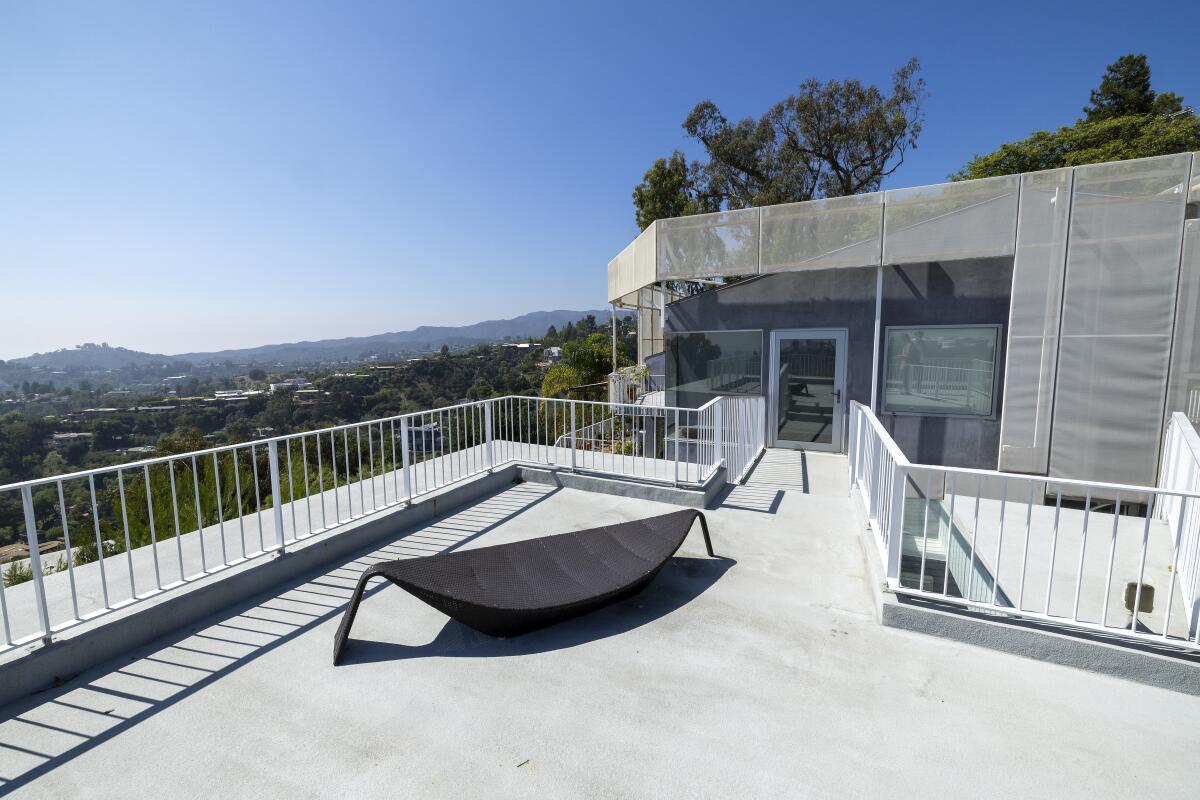Could a community land trust help Chinatown stay affordable? Organizers are trying
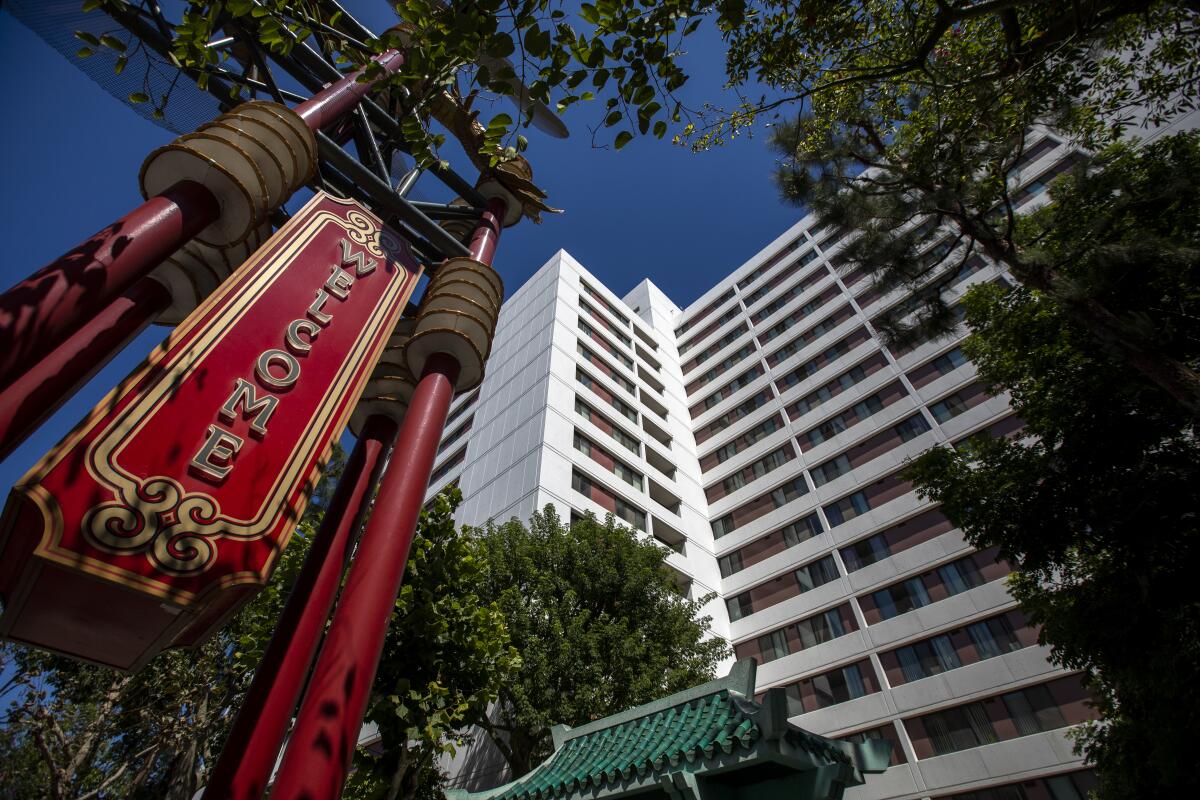
- Share via
Good morning. It’s Friday, Oct. 13. Here’s what you need to know to start your day.
- As Chinatown rent rises, organizers are looking toward community land trusts.
- The attack on Israel is roiling L.A.’s election campaigns.
- 33 of our favorite burgers in SoCal.
- And here’s today’s e-newspaper.
Sign up for Essential California
The most important California stories and recommendations in your inbox every morning.
You may occasionally receive promotional content from the Los Angeles Times.
Could a community land trust help Chinatown stay affordable?
On a cool Saturday evening, dozens of booths lined up on North Broadway for the Chinatown Neighborhood Night Market. A group of elderly women sat on stools surrounding the Dynasty Shopping Center, listening to a rally of speeches. The market featured a fundraiser for Chinatown community members, including the tenants who were facing eviction at the nearby Hillside Villa.
For the record:
4:52 p.m. Oct. 13, 2023A previous version of this newsletter stated that the Chinatown Neighborhood Night Market was organized as a fundraiser for those facing eviction at the Hillside Villa apartment complex. The market did include a fundraiser, but it was not its sole or primary purpose.
Karen Law staffed the booth for the LA Chinatown Community Land Trust, a nonprofit organization that hopes to preserve and manage affordable housing in Chinatown. For years, she watched as businesses were priced out, moving to the San Gabriel Valley, including Monterey Park. The night market was her opportunity to spread the word about a model that she thinks could save Chinatown: community land trusts.
As rents and housing prices rise in Los Angeles and across Southern California, Law is part of a wider movement that aims to allow neighbors to stay in their homes, with plenty of obstacles and promise ahead.
How community land trusts keep housing affordable
Born out of the civil rights movement, a community land trust is a nonprofit that takes land off the speculative market to keep housing permanently affordable. The trust owns the land while tenants can rent or own the buildings on top. Residents don’t pay rent to a landlord, and they share in the maintenance, upkeep and governance of the property together.
It’s a move to bring back the decision-making power to the residents.
“How each CLT functions is different,” said Kasey Ventura, an advocacy director at Beverly-Vermont, a 60-unit community land trust in Koreatown. A common model is the limited equity housing cooperative. Residents purchase a share in the cooperative and commit to resell their share at a price based on a predetermined formula. Los Angeles is already home to a few community land trusts, including ones in El Sereno, Boyle Heights, and South L.A.
There are more than 225 community land trusts across the United States, with more than 30 in California. The model is expanding to other countries such as the United Kingdom, Canada, Belgium and France.
The community land trust model often “goes against the nature” of what many of us have been taught when it comes to why we own property, which is to grow it as an investment and source of individual wealth, Law said.
Advocates of the model say it gives residents more security.
“You have a lot more say about your living conditions than you may have had in the past,” Ventura told me.
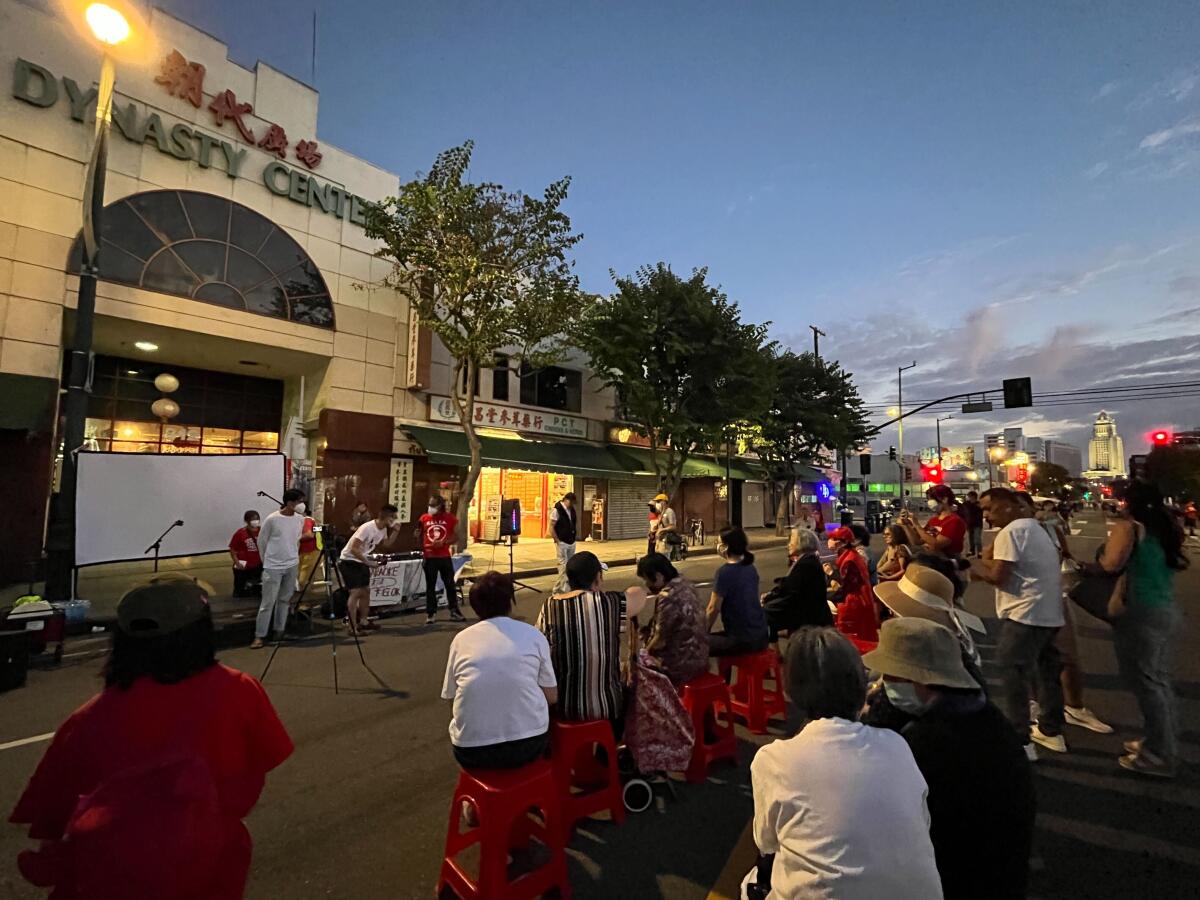
Chinatown’s struggle with development
In the last decade, property developers have built luxury apartments in Los Angeles’ Chinatown, expanding housing but leaving many business owners and tenants struggling to keep up with rent.
Alfredo Espinosa has lived in Hillside Villa, a 124-unit apartment complex, for 27 years. In 2019, his job as a vendor at Dodgers Stadium was able to cover his $1,060 monthly rent. Now, the new property owner is asking for $2,650.
Espinosa’s mother has dementia. He hopes that they can remain in Chinatown because it feels like home to her. Each evening, she takes a walk in Plaza Olvera. “Now she can’t retain any new information. But the things that she’s been doing for a long time, she can still do. If I had to move somewhere else, she’s going to lose that routine,” Espinosa told me.
It’s situations like Espinosa’s that help motivate LA Chinatown Community Land Trust.
What are the challenges ahead?
For the last two years, Law says, she and interim board members and community organizers have done the “nitty-gritty, dry work” of establishing a nonprofit, growing their presence in Chinatown and figuring out the legal pathways toward land ownership. They’re all volunteers.
A lack of awareness of the land trust model means that she and others have to do extra groundwork to be in key conversations when someone wants to sell land.
“If the CLT isn’t known in the community, then the property owners won’t know, oh, maybe we can sell it to the CLT and work out some sort of new financing agreement,” she said.
Gathering enough funding is another hurdle. Community land trusts often depend on grants from local or state governments and private philanthropies. For a loan, banks often want to see a track record of property investment, which is hard for a newer nonprofit.
In 2020, the L.A. County Board of Supervisors invested $14 million in a pilot project to prevent tenant displacement in the COVID-19 pandemic. Reports have already documented positive signs. By 2022, the community land trust program preserved 43 residential units, enabling 110 people to live in stabilized affordable housing. Average development costs were more than $300,000 less than if the county had constructed new housing.
Next month, LA Chinatown Community Land Trust will hold its second annual meeting. Law hopes that more community members will come out to support the group.
“By helping people stay in their community, that is by itself preventing displacement,” she said.
Today’s top stories
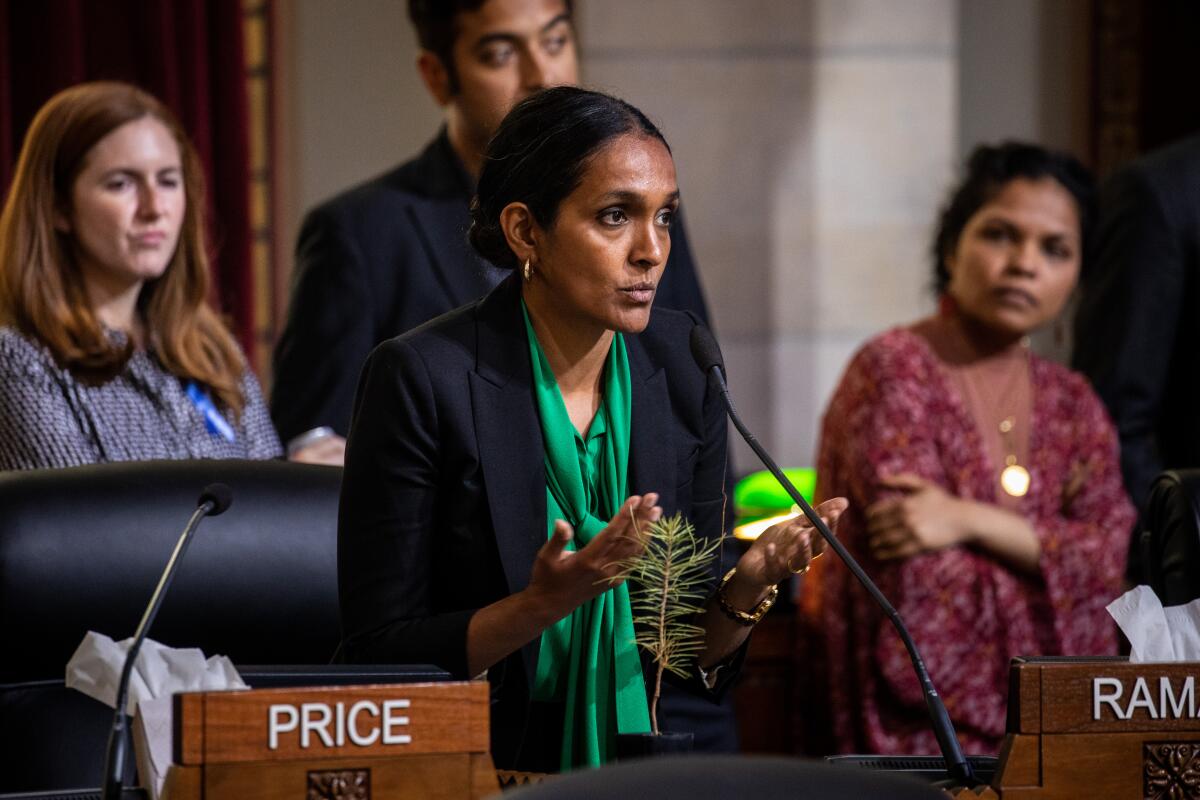
War in the Middle East
- The attack on Israel, and how to respond to it, is roiling L.A.’s election campaigns.
- ‘Helpless’: Palestinian Americans struggle with Hamas-Israel violence.
- Whose stories do we tell? Israeli-Palestinian tensions polarize an Orange County school district.
- In northern Israel, fears grow of a war that engulfs ‘all the Middle East.’
- Horrific images from the Israel-Hamas war pose challenges for TV news.
- For Los Angeles’ Jewish security forces, the Israel attack was a call to arms.
Politics and policy
- GOP’s Steve Scalise ends his bid to become House speaker.
- California voters will be asked to decide on a ballot measure in March 2024 that includes a $6.38-billion bond to pay for mental health housing and services.
- The fallout of the Skid Row Housing Trust collapse is big and small: broken promises, homelessness and lost dentures.
Business
- AMC Theatres CEO says he was the target of an elaborate blackmail scheme.
- Created in California: Packaging pleasure, one sex toy at a time.
More big stories
- A Caltrans executive protested a freeway expansion. Then she was demoted.
- After fatal overdose at L.A. juvenile hall, a mother grieves as drugs remain a threat.
- With salmon at risk of extinction, California begins urgent rescue effort.
- Crime is down, but fear is up: Why is L.A. still perceived as dangerous?
- The L.A. district attorney’s office sends an audio leak eavesdropping probe back to LAPD for additional investigation.
- Did They Misuse AI? This prolific L.A. eviction law firm was caught faking cases in court, reports the LAist.
- Another billion-dollar Powerball jackpot, another big win for a SoCal immigrant-owned shop.
- Gas prices continue to drop across the U.S., but Californians still have to pay more.
- Rudolph Isley, co-founder of R&B stalwarts the Isley Brothers, dies at 84.
- Bruce Willis is ‘incommunicative’ and ‘not totally verbal’ now, ‘Moonlighting’ creator says.
- Entering a critical offseason, the Dodgers seek answers to their postseason dilemma.
Get unlimited access to the Los Angeles Times. Subscribe here.
Commentary and opinions
- Editorial: ‘Ukraine fatigue’ is no excuse to slow military assistance.
- Opinion: The Hamas attack on Israel reflects an intelligence failure. But that’s not the worst failure.
- George Skelton: California Republicans are hoping Steve Garvey is in a league of his own.
- Jackie Calmes: House Republicans should stop following Benjamin Netanyahu’s chaotic example.
- Glenn Whipp: Nicolas Cage has his best role in years. Taylor Swift will be ruling the box office ... but not the Oscars. Maybe they could offer her a friendship bracelet?
Today’s great reads
How exactly did the Airbnb ‘tenant from hell’ get away with living rent-free for 540 days? The lease started on Airbnb, but the landlord allowed the tenant to stay an extra month off the platform, so he wasn’t sure whether to turn to the company or the city for help; it took place during the pandemic in a time with expanded tenant protections; and it was in L.A., a city that has bolstered tenant protections regularly over the last few years. Other factors add to the predicament: The original stay of six months was long enough to establish tenant rights.
Other great reads
- You don’t have to be a Swiftie to love Taylor Swift. The Eras tour movie premiere proves it.
- ‘We’re just a dot’: Ring of fire eclipse draws crowds to California town for deeper perspective and pancakes.
- Valet is the pinnacle of aspirational L.A. living.
- Why California’s great outdoors isn’t real to me until it might kill me.
How can we make this newsletter more useful? Send comments to [email protected].
For your downtime

Going out
- 🍔 From South L.A. to Venice, West Hollywood, Koreatown, San Gabriel Valley and Orange County, here are 33 of our favorite burgers in SoCal.
- 💀 Don’t just trick or treat. These nine Halloween events add some extra fright to your night.
- 🔪 Don’t be scared. The undefinable cooking at Poltergeist will haunt you.
- 🌮 Live lucha libre, secret passageways and celebs: This is dinner at downtown L.A.’s Level 8.
Staying in
- 📙 Sly Stone lives to tell the tale of his lifelong journey to heaven, hell and back.
- 🎙️Ivy Queen brings reggaeton to NPR’s Tiny Desk concert series.
- 🦐 Here’s a recipe for coconut-habanero fish ceviche with poached shrimp.
- ✏️ Get our free daily crossword puzzle, sudoku, word search and arcade games.
And finally ... a great photo
Show us your favorite place in California! Send us photos you have taken of spots in California that are special — natural or human-made — and tell us why they’re important to you.
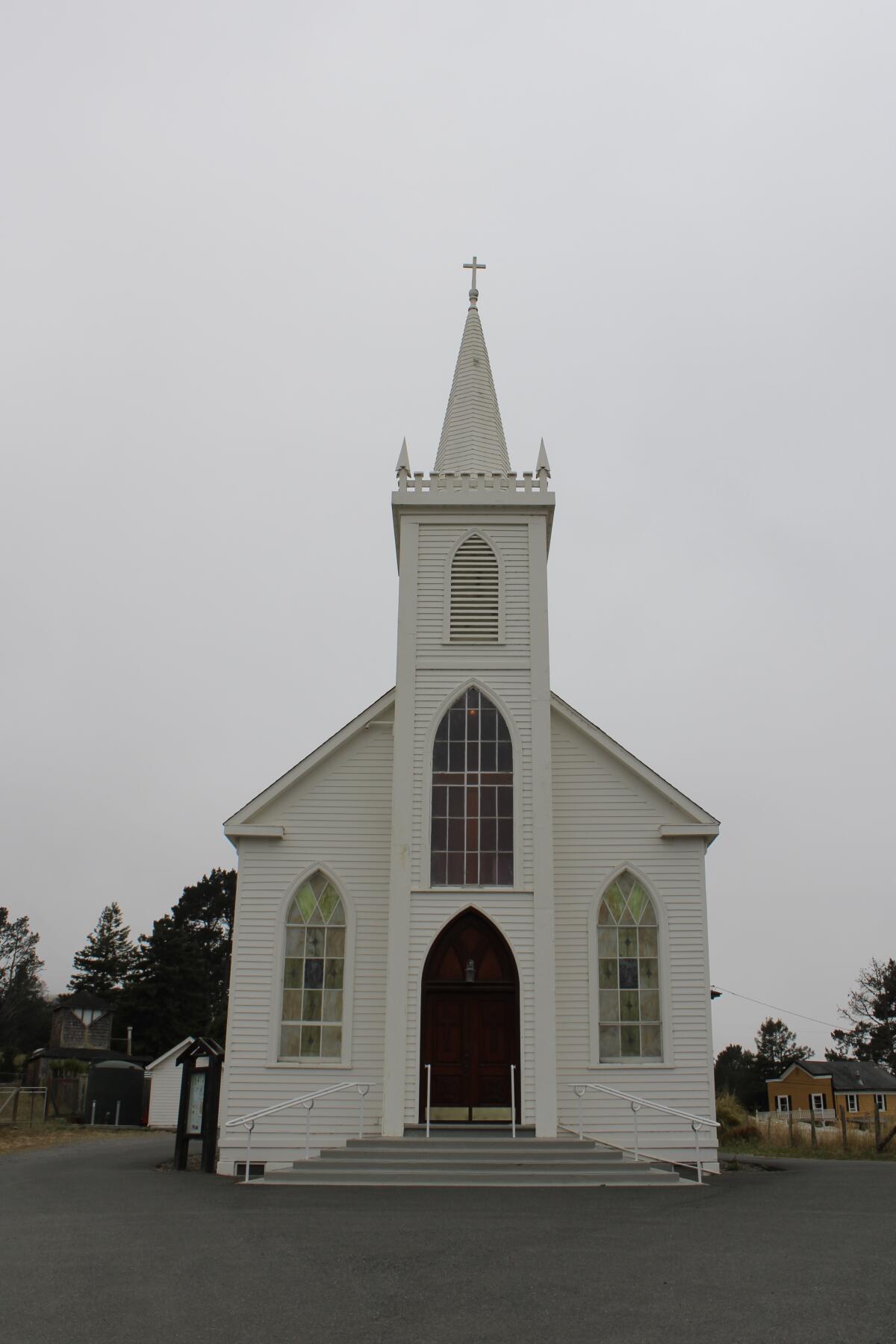
Today’s great photo is from Chris Long of Studio City: St. Teresa of Avila Church. Chris writes:
St. Teresa of Avila Church in the Sonoma County town of Bodega is seen in director Alfred Hitchcock’s 1963 film “The Birds,” but it was already well known from Ansel Adams’ 1953 photograph “Church and Road.”
Have a great day, from the Essential California team
Helen Li, reporting fellow
Elvia Limón, multiplatform editor
Kevinisha Walker, multiplatform editor
Laura Blasey, assistant editor
Karim Doumar, head of newsletters
Check our top stories, topics and the latest articles on latimes.com.
Sign up for Essential California
The most important California stories and recommendations in your inbox every morning.
You may occasionally receive promotional content from the Los Angeles Times.
